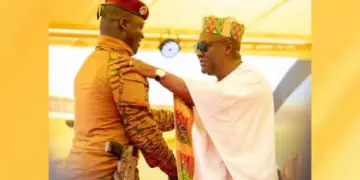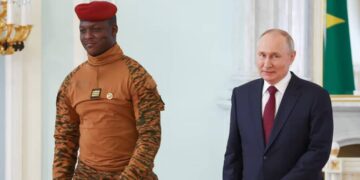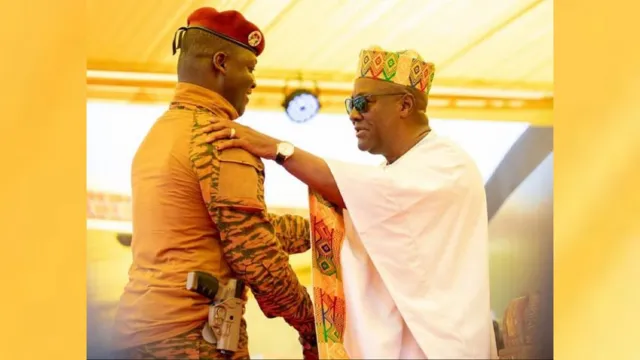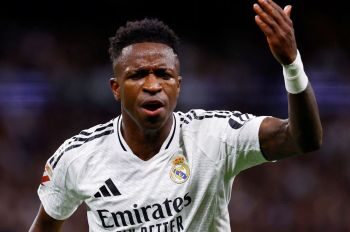By Enyichukwu Enemanna
Burkina Faso junta leader, Capt. Ibrahim Traoré, has sparked reactions following his presence on Tuesday at the Black Star Square, Accra, during the inauguration of Ghana’s President, John Dramani Mahama, where he appeared with a holstered pistol on his waist.
Analysts said it was a breach of security protocol to come close to a nation’s leader with an automated weapon. Others also see it as a lack of trust in the capacity of Ghanaian security forces to protect the Burkinabe junta chief.
Traoré was one of 17 heads of state present, and his visit came at a time of diplomatic tension in West Africa following a wave of military coups, which brought Traoré himself to power in 2022.
Burkina Faso, along with two other military-led states – Mali and Niger – had severed ties with the regional bloc, the Economic Community of West African States (ECOWAS).
A Nigerian social media influencer and former presidential aide, Reno Omokri, condemned Traoré for not disarming himself—something he could easily do if meeting the Russian President, Vladimir Putin.
He blamed the security protocol of the host President for not insisting that Traoré disarm himself before meeting their principal.
“I do not blame the Burkinabe President, Ibrahim Traoré, for meeting the Ghanaian President, John Mahama, with a pistol and meeting Russia’s President Vladimir Putin without arms. If anyone is to be blamed, it is the Ghanaian protocol officers. Ibrahim Traoré would have had to oblige, or be ignored, if they had insisted that he be disarmed,” he said in a Facebook post comparing Traoré’s visits to both leaders in a picture.
“When you treat your fellow African leaders in a way that you would not treat Vladimir Putin, Joe Biden, or Xi Jinping, you are sending out a boomerang that will come back to hit you,” Omokri said further.
Also weighing in on the matter, security analyst Vladmir Antwi Danso said that it is unusual for a head of state to carry a sidearm to an inauguration ceremony, as the security of the visiting leader is the responsibility of the host.
He indicated that Ghanaian and Burkinabe security personnel should have discussed the issue to ensure the right protocols were being followed. “Either that wasn’t done or it was poorly done,” BBC quoted him as saying.
While another security analyst, Rtd. Col. Festus Aboagye, agrees that the host nation is typically responsible for protecting visiting presidents, he says bilateral arrangements can lead to variations.
He suggested that a consensus may have been reached to allow Traoré to wear his military attire and carry his sidearm, along with some of his personal security detail.
“I don’t think it’s a security breach in the context people are suggesting, [as] if he had taken out the weapon to shoot. That’s a bit far-fetched,” Col. Aboagye said.
But the fact that a military leader was “wielding a gun, demonstrating that they have that power of the gun because they’re military leaders and attending an investiture of a democracy is a bit awkward,” Emmanuel Bensah, who works on issues of regional integration, said.
Relations between Ghana and Burkina Faso have been strained, particularly after Ghana’s former President Nana Akufo-Addo accused Traoré of harbouring Russian mercenaries.
Traoré’s attendance at the inauguration was seen as a significant diplomatic gesture aimed at normalising relations between the two countries.



































